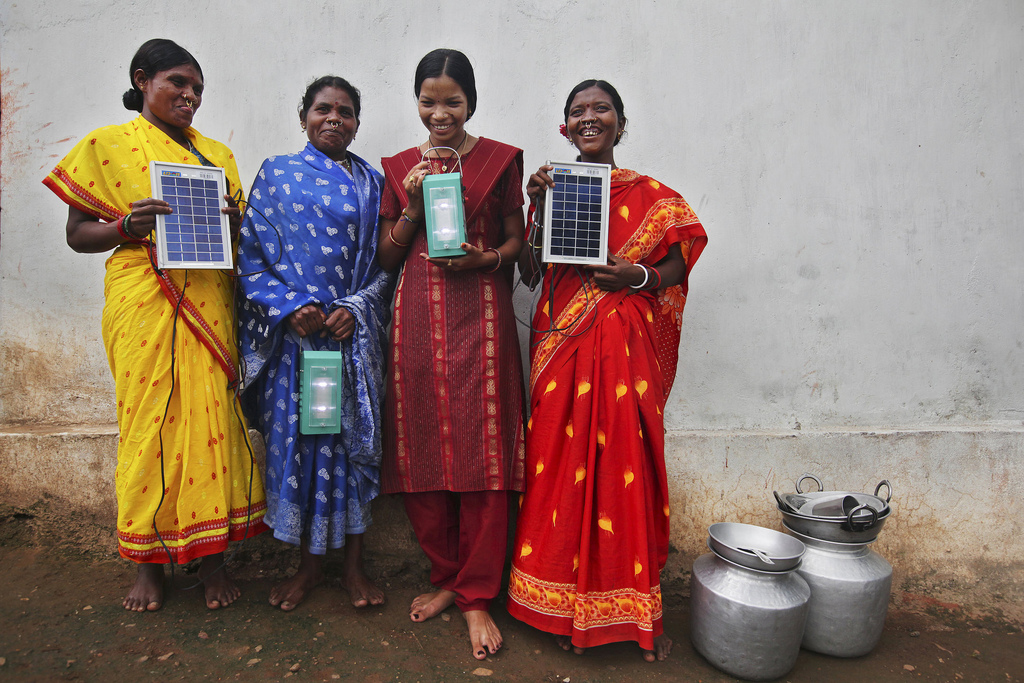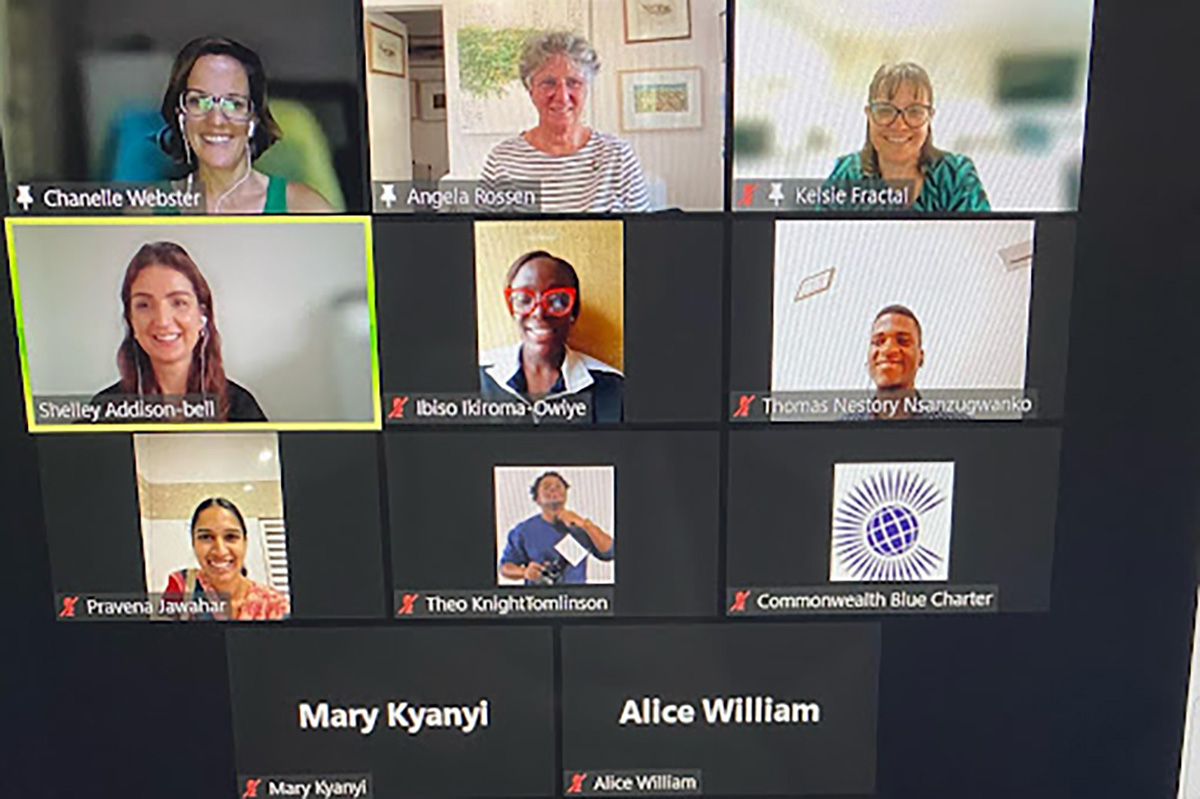“Harnessing opportunities: climate change”
November 15 Young people play an integral role in advancing development, democracy and peace. At the 10th Commonwealth Youth Forum in Malta, 21-25 November, over 400 youth leaders will discuss the challenges and opportunities facing young people, and devise policy through four main agendas – economic, environmental, social and political. The theme of the Forum is ‘Adding Global Value… #Whatnext?’ Advira Shand, 26, a Commonwealth Correspondent from Manchester in Jamaica, says that transforming climate change can create opportunity for youth.
Young people play an integral role in advancing development, democracy and peace. At the 10th Commonwealth Youth Forum in Malta, 21-25 November, over 400 youth leaders will discuss the challenges and opportunities facing young people, and devise policy through four main agendas – economic, environmental, social and political. The theme of the Forum is ‘Adding Global Value… #Whatnext?’ Advira Shand, 26, a Commonwealth Correspondent from Manchester in Jamaica, says that transforming climate change can create opportunity for youth.
Internationally, climate change poses a serious and imminent threat to a plethora of countries, especially small developing states.
Not surprisingly, the unsavory nature of climate change has forced governments, private bodies and communities worldwide to take decisive action in an attempt to adapt to and mitigate against its effects. However, there is still much more that can be done to strengthen the fight.
With approximately 1.8 billion young people throughout the world between the ages of 10 and 24, according to the United Nation Population Fund, it is gravely important that youths begin to unite their efforts against climate change. It is no secret that youths are extremely vulnerable to the severe impacts of climate change, however the challenges that they are exposed to can be transformed into relevant opportunities for sustainable development.
What opportunities?
Climate change has been successfully, for decades, posing a serious threat to global food security by increasing the severity and frequency of weather events such as droughts, storms and hurricanes. It is displacing and disrupting the lives of scores of individuals, and enabling the spread of many diseases such as chikungunya, malaria and dengue fever. Undoubtedly, these facts may prompt ill-informed skeptics to question the aforementioned assertion that climate change has the potential to foster valuable opportunities for youths globally. However, remarkable youth initiatives such as the Bamboo Bicycle Project in Ghana offer unquestionable proof that youths stand to reap numerous opportunities in the face of climate change. The Bamboo Bicycle Project is aimed at providing jobs for numerous youths and promoting healthy, non-polluting forms of alternative travel.
Climate change poses a direct threat to youth employment and economic stability, especially for those living and working in rural economically-depressed areas. However, climate change mitigation and adaption efforts have the potential to promote entrepreneurship among youths and create numerous ‘green jobs’ across many sectors, including transportation, agriculture, manufacturing, recycling, and energy supply.
According to the United Nations’ ‘World Youth Report: Youth and Climate Change’, “green jobs represent an opportunity to make development truly sustainable, as they are specifically geared towards reducing the ecological footprint of economic activities. Simultaneously, they can play an important role in efforts to address rising unemployment”.
As a result of increased investment in renewable energy throughout the globe, it is further highlighted within the United Nations’ Report that “there have been more than 2.3 million green jobs created in the renewable energy sector in recent years, including 300,000 in the wind industry, 170,000 in solar photovoltaics, 624,000 in the solar thermal industry, and 1,174,000 in biomass production”. Without a doubt, youths will be able to access suitable jobs within the renewable energy sector and other green sectors in areas such as research, analysis, construction, management and design and planning.
Already in Nairobi, youths involved in the Kibera Community Youth Programme have been garnering needed jobs assembling solar panels. In addition, climate change adaptation and mitigation efforts have fostered the creation of innovative products and ideas among youths from different countries. These inventions have not only served to highlight the unlimited potential that youths possess, but they have also been quite instrumental in reducing climate change and its effects.
The challenges posed by climate change can be manipulated to promote increased youth participation in policy development and advocacy. Youths are becoming acutely aware of climate change and its devastating impacts. It is this awareness that has inspired the need to protect the environment in an effort to ensure sustainable development through increased participation and activism. As a result, youths around the world have become actively involved in a number of international and local youth-led organisations that are geared toward creating awareness about climate change and the environment, participating in local and international campaigns, engaging in initiatives aimed at adapting to and reducing climate change, and encouraging governments and other stakeholders to make policies and take action to combat climate change. Examples of these youth-led organisations include the Commonwealth Youth Climate Change Network, the Caribbean Youth Environment Network and the Indian Youth Climate Network.
Youths are indeed “at the heart the of today’s great strategic opportunities and challenges” as postulated by the renowned Hillary Clinton. They have the potential to effectively assist in and strengthen international and regional efforts to combat climate change, by capitalising on the opportunities that they can harness from the challenges posed by climate change. Taking advantage of these opportunities, youths will not only be able to reduce climate change but also ensure sustainable development in impoverished states that are most vulnerable to its impact.
References
Crossan, A. (2014) Jamaica declares state of emergency to try to stop the spread of the painful chikungunya virus. Retrieved on the 5th of November, 2015, from www.pri.org
Food and Agriculture Organization (n.d.) Children and Youth. Retrieved on the 6th of November 2015, from www.fao.org/
Mendes- Franco, J. (2014) The chikungunya virus brings Jamaica to its knees. Retrieved on the 5th of November 2015, from globalvoicesonline.org
Patterson, C. (2015) US$200 million invested in renewable energy projects. Retrieved on the 5th of November, 2015, from jis.gov.jm
Selvaraju, R., et al. (2013) Climate change and agriculture in Jamaica. Retrieved on the 5th of November 2015, from www.fao.org
The London School of Economics and Political Science & Grantham Research Institute on Climate change and the Environment (2015) Approach to climate change. Retrieved on the 5th of November, 2015, from www.lse.ac.uk
United Nations (2010) World Youth Report: Youth and climate change. Retrieved on the 6th of November 2015, from www.un.org
United Nations Development Programme in Jamaica (2014) Coping with climate change. Retrieved on the 5th of November 2015, from www.jm.undp.org
United Nations Joint Framework Initiative on Children, Youth and Climate Change (2013) Youth in action on Climate Change: inspirations from around the world. Retrieved on the 6th of November 2015, from www.unicef.org
United Nations Population Fund (n.d.) Youth Participation and leadership. Retrieved on the 5th of November, 2015, from www.unfpa.org
United States Environmental Protection Agency (2013) Human Health. Retrieved on the 5th of November, 2015, from www.epa.gov
Wibby, B. (2013) Young people play a key role in addressing global climate change sustainability.
Retrieved on the 6th of November, 2015, from msue.anr.msu.edu/
photo credit: A solar powered future via photopin (license)
…………………………………………………………………………………………………
About me:
It is my desire to inspire growth among youths and within the region I inhabit. I have a Bachelor’s degree in International Relations and serve as a Managing Partner at WAGS Construction. It is my intention to undertake graduate studies that will help me in my quest to occupy a position within my country where I can assist in crafting policies that will fuel development within developing states.
…………………………………………………………………………………………………
Opinions expressed in this article are those of the author and do not necessarily represent the views of the Commonwealth Youth Programme. Articles are published in a spirit of dialogue, respect and understanding. If you disagree, why not submit a response?
To learn more about becoming a Commonwealth Correspondent please visit:
http://www.yourcommonwealth.org/submit-articles/commonwealthcorrespondents/
………………………………………………………………………………………………




